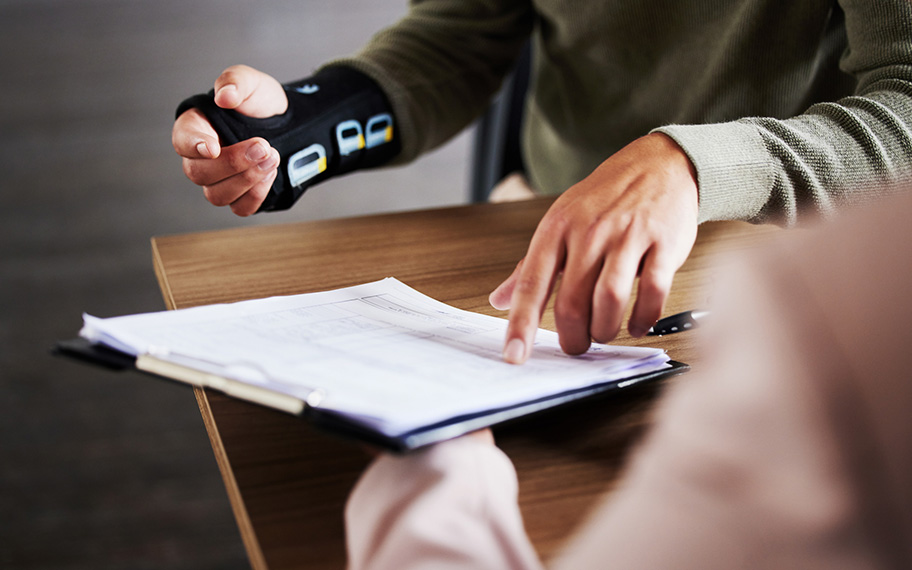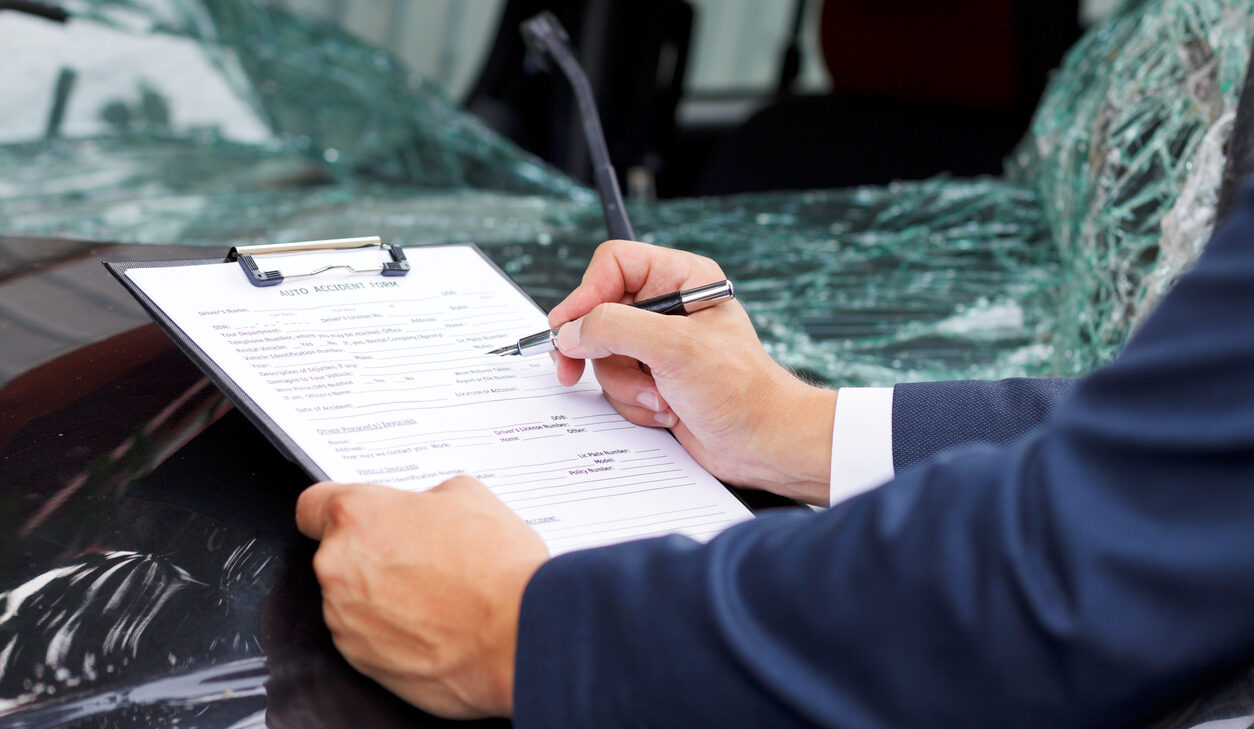How does mediation work in personal injury claims?
Though the process can differ slightly between states, here’s how mediation for personal injury claims typically works:
1. Mediation is initiated
In most cases, you’ll be required to try mediation before going to court. However, if mediation is not required in your situation, any of the other parties can request it.
Once mediation is initiated, everyone needs to agree on a mediator. This person is typically a retired judge, barrister, or solicitor with a deep understanding of personal injury law, negotiation tactics, and the settlement process. Their job is to stay neutral and help everyone find a solution. They won’t take sides, hand down judgments, give advice, or tell anyone what to do.
At this stage, your lawyer will explain what you can expect from the mediation process. We’ll also provide an estimate of what your claim is worth, so you’ll have a clear understanding of the potential compensation. This helps you manage your expectations while also ensuring that you won’t settle for less than you deserve during negotiations.
2. Preparation starts
Before the mediation session, all parties prepare by gathering relevant documents, evidence, and any necessary expert reports. They’ll also outline what they hope to achieve from the mediation, including compensation amounts or specific terms.
Your lawyer will prepare the case on your behalf, pulling together all the required documents and evidence ahead of time. This thorough preparation and expertise can make all the difference in securing the best possible outcome for your case.
If you’ve prepared your claim on your own, our lawyers can review it for free — there’s nothing to lose and it’s a good way to ensure you’re ready for mediation.
3. The mediation session begins
During the mediation session, the mediator will start by explaining the process and encouraging each party to share their perspective. They may also meet with each party separately (called ‘caucusing’) to discuss concerns and explore potential solutions. This allows for open communication without the pressure of directly confronting the other parties.
By having a lawyer on your side, you’ll have an experienced professional managing all the communication, reducing the risk of miscommunication and keeping the mediation on track.
4. Negotiations commence
The mediator’s role is to guide negotiations between both sides, helping them find common ground and agree on a fair solution. At this stage, having a lawyer by your side is a huge advantage — they’ll handle tough conversations, push back on unfair offers, and present strong evidence proving your case.
This is especially important if there’s disagreement over who’s at fault or if the insurer isn’t willing to negotiate. Your lawyer will use expert evidence and arguments to prove liability and show the other side that their chances in court aren’t as strong as they might think — or that you could win outright.
Throughout negotiations, your lawyer will focus on getting you the highest possible settlement. With our experience, we know exactly how to approach insurers, whether it’s starting with a higher figure or negotiating up from a lower offer.
We also know when to push for more money and when to challenge claims that the insurer has ‘reached their limit’. Your lawyer will never accept a lowball offer, so you can be confident that your compensation will fully reflect the physical, emotional, and financial impact of your injury.
5. A resolution is reached
If the parties reach an agreement, the mediator will help draft a binding settlement agreement that outlines the terms. This can include compensation amounts, payment plans, or other conditions. But if an agreement isn’t reached, parties can still proceed to court. The discussions during mediation are generally confidential, so what’s said cannot be used in court.
6. The agreement is implemented
If an agreement is reached, all parties follow through on the terms outlined in the settlement. Some mediators may check in after a few weeks to ensure that the terms are being honoured and that all parties are satisfied.
Start your free online claim check
Find out if you’re eligible for compensation today.
What are the benefits of mediation?
Unlike a court hearing, which can feel like a battle where each side is out to win at all costs, mediation is all about working together to find a solution that works for both parties. It’s a more cooperative approach, allowing everyone to share their concerns, lay out their demands, and find common ground in a relaxed environment.
In mediation, both parties can sit down in a less formal setting than a courtroom and discuss their grievances and areas of agreement. Together, they can come up with terms that lead to a settlement both can sign off on.
Here are some key benefits of mediation:
Do most personal injury cases settle at mediation?
Yes, over 95% of claims are settled during mediation.
However, if the insurer won’t pay what your claim is worth, we’re ready to take your case to court. If that happens, the process will generally follow a few key steps, though the exact details will depend on the type of claim you’re making and the state you’re in.
- File your claim in court: first off, you’ll need to file your claim in the right court. This means putting together a statement of claim that explains what happened, your injuries, and how much compensation you’re after. If you’re working with a lawyer, they’ll take care of this entire process for you, ensuring your statement of claim is clear and reflects the full scope of your case.
- Serve the other party: after that, you’ve got to serve the statement of claim to the other party. This basically means letting them know you’re taking legal action. Again, when you’re working with a lawyer, they’ll handle this for you.
- Gather more evidence: it’s important to gather fresh, solid evidence to show your injury, how it affects your life, and prove that it meets the specific requirements of your claim. Importantly, there’s no expectation that you’ll do this on your own — a lawyer can have relevant experts provide testimony supporting your claim. Since we’re No Win No Fee lawyers, we’ll cover the cost of all this evidence.
- Defence submission: the other party then has about 28 days to file a defence. This is their chance to say their side of the story and argue against your claims.
- Disclosure: next, both sides will go through a disclosure process where you exchange relevant documents and evidence. This helps everyone know what to expect and keeps things fair. Your lawyer will handle this process for you, while also ensuring the other party meets all their obligations.
- Interlocutory applications: before the trial starts, either party can make applications to the court about any issues or questions that come up. This could be things like asking to remove parts of the claim or getting more time to gather evidence. Your lawyer will thoroughly review all documents and evidence and make all appropriate applications on your behalf.
- Mediation: this is usually where mediation happens in the process. With our detailed preparation and experience, it’s likely your claim will resolve at this point. But if the insurer isn’t offering you a fair settlement, we’ll continue to trial.
- Trial: this is where both sides present their evidence and make their arguments in front of a judge. The judge will listen to everything and then decide whether you’ll get compensation and how much it will be.
- Appeals: if you’re not happy with the judge’s decision, your lawyer can immediately begin helping you appeal the decision to a higher court. The appeals process can be extremely complex, but your lawyer will still take care of everything. They’ll continue fighting to secure the compensation you deserve.
To sum up
Mediation is a practical way to settle personal injury claims without the hassle of going to court — but preparation is key. That’s where having an experienced lawyer is invaluable. They’ll handle the groundwork, from gathering documents to building a strong case, giving your claim the best chance for a quick, fair settlement.
A lawyer will also manage negotiations, push back on lowball offers and help you avoid common missteps. And if mediation doesn’t lead to a settlement, having a lawyer makes it easier to move forward in court.
Whether you’ve been injured recently, started your claim already, or just need some free advice on mediation — we’re here to help. Our lawyers are always available to discuss your situation and guide you through the claims process.



